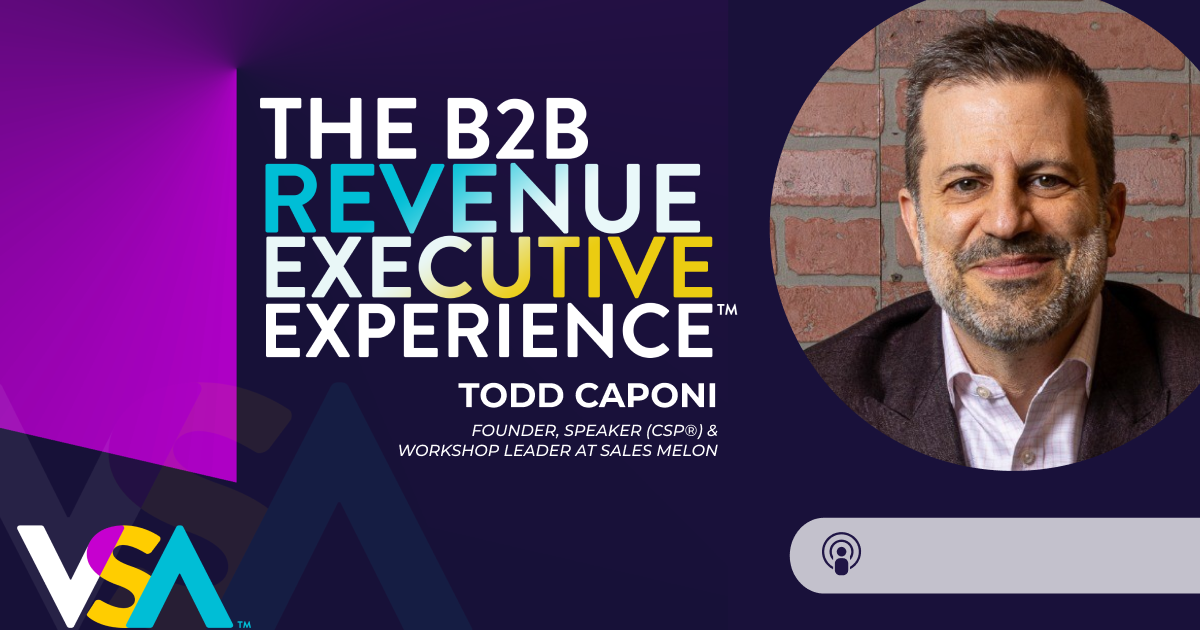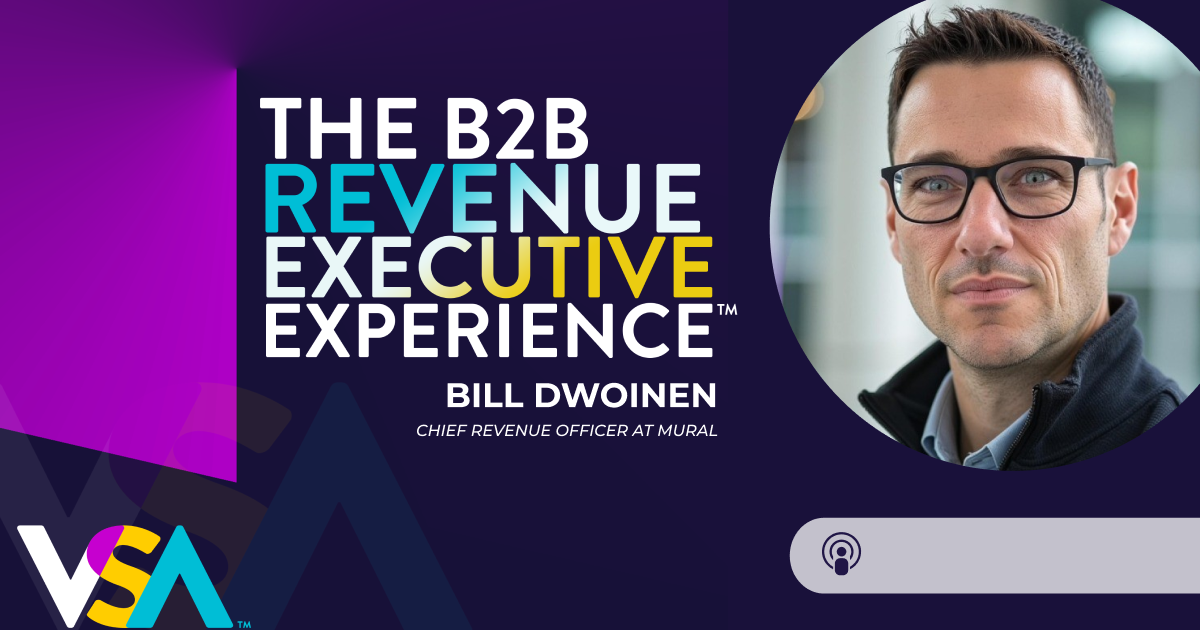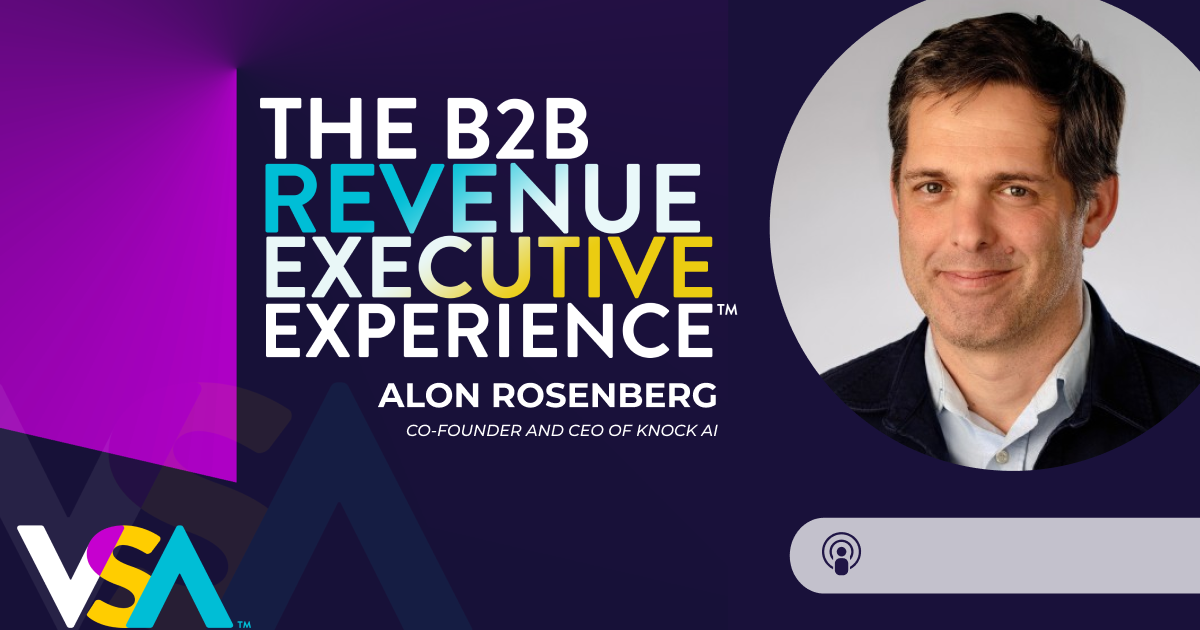Why You Should Invest More in Performance Management

One thing I’ve always been fascinated by is the way most companies usually approach promoting sales reps to management.
You have great numbers, so you should manage others using an entirely different set of skills, which we’re not going to train.
Weird, right? Imagine if you were a great roofer and get promoted to lead architect — and you aren’t even taught the necessary skills.
I wouldn’t buy a house from you.
It doesn’t have to be such a dramatic transition. We just need to invest in a few key things taught to our promoted reps.
And top of that list is performance management.
For our latest episode, I spoke with Ed Eppley, owner of The Eppley Group and author of Let’s Be Clear, about how we can get better performance management from our leaders.
Let’s find out what he can teach us, shall we?
What is performance management?
Performance management is the ability to quantify and set expectations for others and to hold them accountable for those expectations. This involves providing feedback and coaching — both formally and informally — throughout the year.
“Accountability” is the most important aspect of performance management, but it’s the element most companies struggle with.
The problem is managers may be given a model, but are usually not trained in how to set expectations with others. Upwards of 90% of managers have never learned this skill.
So why don’t companies spend money training managers to set expectations?
Well, because the people running these companies also never learned. As a result, they end up counting on HR to come up with a system or process. But then nobody likes it.
“The work could be done on the front end to really make clear to somebody what success looks like in their job. We’re willing to do it when we want to fire them. Why don’t we do that when we hire them?”
ED EPPLEY at The Eppley Group
Managers are the problem, not the employees…
But they could be the solution. The key is to work on this expectation-setting.
And when it comes to the quantifiable aspect of performance management, salespeople are probably the easiest people to set expectations for things like number of sales — they’re clearly used to it.
But when it comes to qualitative expectations — how well you get along with, treat or work with others — these don’t get quantified until you have to fire someone.
This is painfully obvious when it comes to the “destructive hero,” Ed’s term for the salesperson whose numbers are great, but they still get fired for the impact they have on others.
So what can be done?
Strategic planning
First, the organization needs to make sure their teams are actually teams.
All too often — especially in sales — what you call a team is actually just a group of individuals cobbled together as a workgroup. Basically, they’re swimmers on a swim team, but we want them to be more like synchronized swimmers.
To achieve this, we need strategic planning, which every manager should know anyway.
There are 5 stages to this:
- Identify your ideal customer
- Build organizational buy-in
- Clarify your priorities
- What won’t we do?
- You, as the boss, need to be fully committed to the previous 4 stages
“The number one aspect of strategic planning is identifying the ideal customer. That’s who you should be building your systems, your processes and your infrastructure to serve.”
ED EPPLEY at The Eppley Group
Most of these are self-explanatory. Your ideal customer, for instance, dictates everything about your company (though, many companies do not do this well). For changes to happen, you need people to be on board and you need to know what you’ll pinpoint what is important.
Then comes step 4: You need to figure out what’s just not going to happen. If you’re a manager, you know there’s more work than you can actually get done. If you’ve set your priorities properly, you should know what can be jettisoned.
Step 5 is crucial. If you are going to go through all the work to do the first 4 steps, what good is it if a few months down the line you decide you don’t really care?
When it comes to performance management, this just shows the conversations you’re having where you tell employees what is important actually doesn’t matter to you.
This leads to an absolute trainwreck — and massive attrition.
And it’s not the marginal performers who leave. It’s the top performers — because they realize they are wasting their time and career potential by staying on a team where things don’t get done.
Getting culture right
The other key ingredient in successful performance management is how you set up your culture.
“Culture is a combination of the written and the unwritten rules for behavior.”
ED EPPLEY at The Eppley Group
The written rules for behavior are less important. Let’s be honest, they’re crafted for the 5% of people who actually still need no smoking signs in a movie theater.
The right culture is really just about creating a path of least resistance for people to naturally behave the way you want. If they do, they support the business model we want
But how are the unwritten rules defined… you know, without writing them down?
First, it’s important how leadership reacts to its team. Their wins, losses, successes and failures. Most people really just look to their boss when they or others screw up and gauge the reaction.
Second, your culture should be toxic to people who shouldn’t be in your organization. It should repel them before they even come in for a second interview. Of course, you need to have a clearly visible culture for this to happen.
Third, managers have to spend less time managing people who aren’t behaving the way they would — this way, there will be fewer people who aren’t behaving how management wants.
Finally, employee satisfaction needs to be improved.
“Greater employee satisfaction and engagement immediately translates into greater external customer satisfaction.”
ED EPPLEY at The Eppley Group
And this is the name of the game, right? If we want customer loyalty and increased lifetime value, it’s a lot easier to keep them than get new ones.
So, let’s make the most of our employees and, ultimately, our customers.
This blogpost includes highlights of our podcast interview with Ed Eppley, Owner of The Eppley Group.
For the entire interview, you can listen to The B2B Revenue Executive Experience.
If you don’t use Apple Podcasts, we suggest this link.
Explore More









